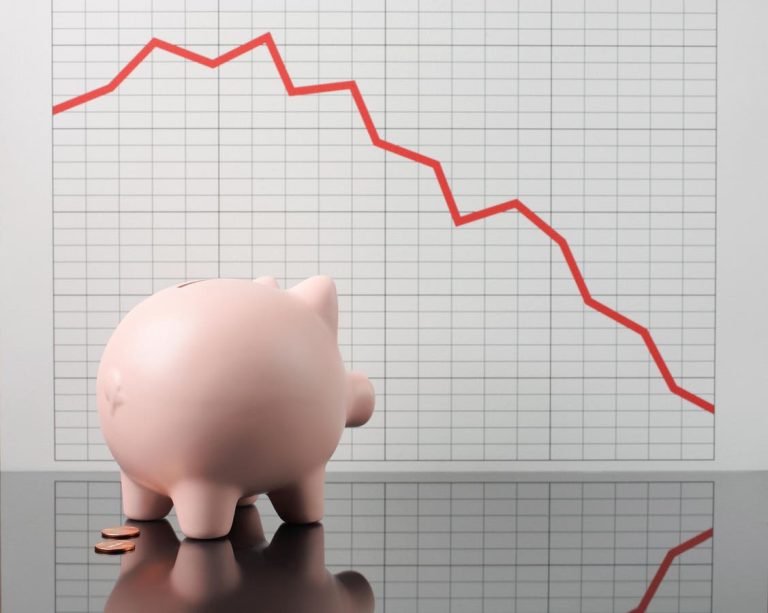If you’re retired, what should you do about recent gyrations in the stock market? During 2024, the S&P 500 gained 25% when you include the return from dividends. In 2025, however, it’s fluctuated significantly due to concerns about a possible recession caused by pending tariffs and layoffs. Depending on which day you checked, the return on the S&P 500 could have been down 5% or more.
Adding to investors’ anxiety are the predictions that the stock market is currently overvalued and is headed for a significant decline in the near future.
Let’s look at a historical perspective on stock market returns that can help retirees evaluate their investments. Then let’s examine three possible responses retirees may want to take.
Most Of The Time, But Not Always, The Stock Market Has Earned Positive Returns
Figure 1 in the chart below shows the annual return in the S&P 500 since 1926, including the return from dividends. This chart provides a visual of the following conclusion: Most of the time, but not always, you’ll earn more money by remaining invested in the stock market.
The numbers confirm the stock market “double-double” advantage:
- There are far more years of positive returns than negative returns—the score is 73 positive years to 26 negative years.
- The arithmetic average gain in positive years is much more than the average loss in negative years. The score is an average positive return of 21.7%, compared to an average negative loss of 13.4%.
The chart also shows that if you’re invested in the stock market during your retirement, you should be prepared for some years of negative returns—it’s inevitably going to happen. Historically, however, if you were patient and stayed invested, the market eventually bounced back and you most likely would have experienced a net gain. This observation might be most relevant for retirees in their 50s, 60s, or early 70s who could be retired for 20 years or more and have the time to be patient.
It’s important to remember that most people—professionals and amateurs alike—don’t have a reliable crystal ball that warns them when the stock market will drop or alerts them when the market is about to take off. This means you’ll need to develop strategies to protect your retirement income and lifestyle without knowing when the market might crash.
With these observations in mind, let’s look at three possible strategies you might consider for your retirement investments.
Strategy #1: Keep Calm And Carry On
With this perspective, you wouldn’t make significant changes to your asset allocation for investments that generate retirement cashflow, since you’ve developed a careful strategy to ride out downturns. Here are two strategies that serve this purpose, supported by research I’ve conducted at the Stanford Center on Longevity:
- Have enough regular retirement income that won’t decrease if the stock market crashes. How much is “enough”? An amount that prevents you from panicking and selling your investments when the stock market is dropping. One possibility is to cover most, if not all, of your “must have” living expenses with protected sources of retirement income. Examples of such protected income include Social Security, pensions, income annuities, and cash flow from a bond ladder.
- For your regular, systematic withdrawals from invested assets, be prepared to reduce your withdrawals when the market is down and not overspend when the market is up. This can help minimize your long-term losses due to sequence-of-returns risk—the risk that you’ll withdraw so much during downturns that you won’t have sufficient assets with which to bounce back when the market turns up again.
You can implement this second strategy by using a dynamic withdrawal method to determine the annual amount of your withdrawals. Such a method automatically reduces your withdrawals during downturns and limits withdrawals during upturns. The IRS required minimum distribution is one example of a dynamic withdrawal method that research shows has worked well in the past.
Strategy #2: Declare Victory
This strategy might be most appropriate for retirees in their mid 70s or older who have a more limited investing horizon or for retirees who are very conservative with their investments.
With this strategy, you decide that while you’ve had a good ride in the stock market, the ride is over. The S&P 500 has had positive returns in 14 of the 16 years since the 2008 financial crisis, with the one significant loss in 2022 attributable to the pandemic. You could decide that you’ve enjoyed cumulative returns far higher than what you expected when you retired. Even if you lost 5% in 2025, you’re still way ahead given your gains in 2024 and earlier.
So, it could be time to declare victory and secure your gains. In this case, you’d shift a significant amount of your stock market investments to cash, bonds, or income annuities.
Keep in mind that if you sell stock investments with significant gains, you could incur capital gains taxes on investments that are not invested in tax-advantaged retirement accounts, such as IRAs, 401k, 403b, or 457 accounts.
Strategy #3: Modest Refinements And Careful Watching
This strategy is a hybrid of the two strategies described above. With this approach, you’d make modest changes to your asset allocation, such as rebalancing your money between stocks and bonds towards a specified goal. It could also include converting some of your invested assets to a low-cost income annuity or bond ladder, while still maintaining some stock market investments. Finally, it could include building cash reserves to help ride out future downturns.
The best investment strategy for you would generate sufficient cashflow to support the life you want, while helping you sleep at night without money worries interrupting your dreams. No matter where you are in your retirement journey, it’s worth your time to periodically review your investment and retirement income strategies with these goals in mind.
Read the full article here









